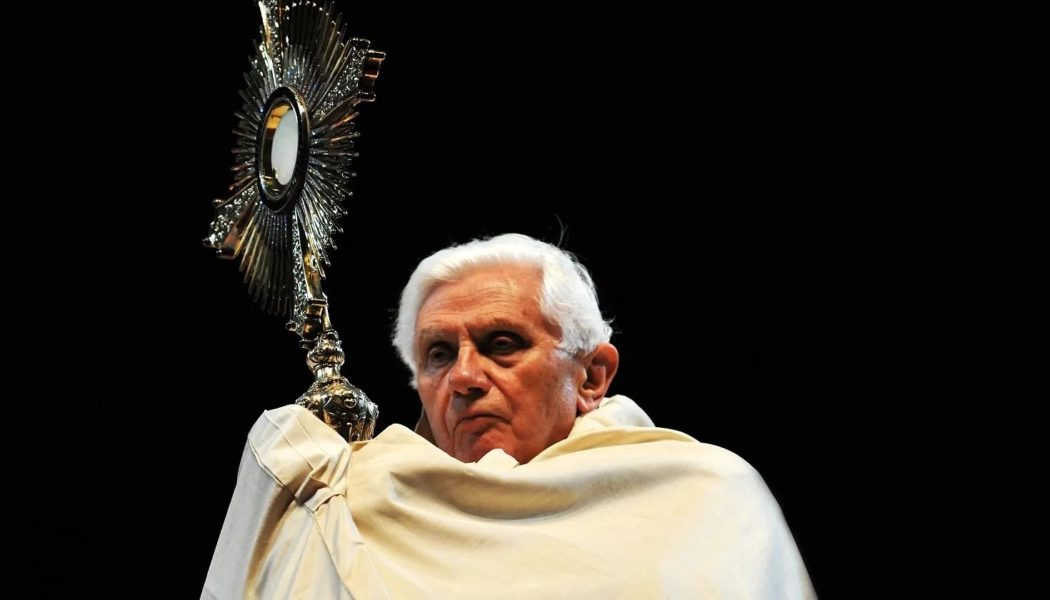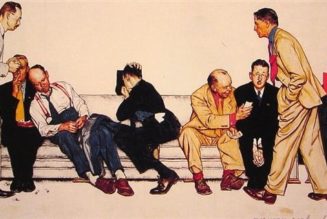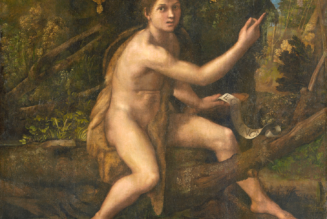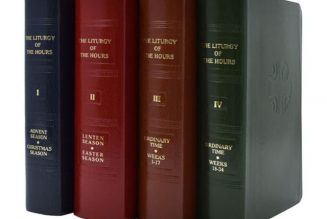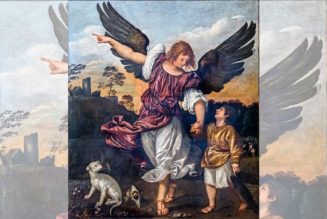
Pope Benedict XVI considered the story of the Magi, the star, and the Baby Jesus a master story for the Christian life, and it is perhaps no coincidence that we will hear that story at The Epiphany of the Lord celebration so soon after his death and funeral.
In 2005, Pope Benedict XVI became pope and one of his first major events was World Youth Day. The event took place in and around the cathedral in Cologne, Germany, which houses the relics of the three wise men, so the Epiphany story made an appearance in nearly all of his remarks. Below find words of his from several Cologne addresses, rearranged according to the themes presented in the Epiphany Gospel.
The Journey We Take
The Gospel says: “And behold, the star that they had seen at its rising preceded them, until it came and stopped over the place where the child was.”
Pope Benedict XVI told pilgrims to focus first on the Magi’s quest. “The Magi set out because of a deep desire which prompted them to leave everything and begin a journey. It was as though they had always been waiting for that star. It was as if the journey had always been a part of their destiny, and was finally about to begin.”
“Like the Magi, all believers — and young people in particular — have been called to set out on the journey of life in search of truth, justice and love,” he said. “We must seek this star, we must follow it. The ultimate goal of the journey can only be found through an encounter with Christ, an encounter which cannot take place without faith.”
The Answer We Find
Sunday’s Gospel says: “Going into the house, they saw the child with Mary his mother, and they fell down and worshiped him.”
We all do the same thing, Pope Benedict said. “In order to find the Savior, one has to enter the house, which is the Church.”
He explained: “Dear friends, this is not a distant story that took place long ago. It is with us now. Here in the Sacred Host he is present before us and in our midst. As at that time, so now he is mysteriously veiled in a sacred silence; as at that time, it is here that the true face of God is revealed. For us he became a grain of wheat that falls on the ground and dies and bears fruit until the end of the world.”
According to Pope Benedict, “The Magi from the East are just the first in a long procession of men and women who have constantly tried to gaze upon God’s star in their lives, going in search of the God who has drawn close to us and shows us the way.”
The Magi’s Inner Journey
Sunday’s Gospel says: “They were overjoyed at seeing the star, and on entering the house they saw the child with Mary his mother. They prostrated themselves and did him homage.”
Pope Benedict told young people at World Youth Day that the moment the Magi found Jesus, a second journey started.
“Outwardly, their journey was now over. They had reached their goal,” he said. “But at this point a new journey began for them, an inner pilgrimage which changed their whole lives. Their mental picture of the infant King they were expecting to find must have been very different.”
He explained: “The new King, to whom they now paid homage, was quite unlike what they were expecting. In this way they had to learn that God is not as we usually imagine him to be.”
The Gift of Adoration
Sunday’s Gospel says: “Then they opened their treasures and offered him gifts of gold, frankincense, and myrrh.”
We all should give Jesus what the Magi gave him, Pope Benedict said. The way we do that is to give him our very selves.
“They had come to place themselves at the service of this King, to model their own kingship on his,” Benedict said. “Included in this were their gifts — gold, frankincense and myrrh — gifts offered to a King held to be divine. Adoration has a content and it involves giving. Through this act of adoration, these men from the East wished to recognize the child as their King and to place their own power and potential at his disposal, and in this they were certainly on the right path.”
A Lesson in Power
Sunday’s Gospel also focuses on wicked King Herod who tries to trick the Magi, saying: “Go and search diligently for the child. When you have found him, bring me word, that I too may go and do him homage.”
Benedict said: “They knew that in order to change the world it is necessary to have power. Hence, they were hardly likely to seek the promised child anywhere but in the King’s palace. Yet now they were bowing down before the child of poor people, and they soon came to realize that Herod, the King they had consulted, intended to use his power to lay a trap for him, forcing the family to flee into exile.”
Benedict explained: “Now they were able to see that God’s power is not like that of the powerful of this world. God’s ways are not as we imagine them or as we might wish them to be. God does not enter into competition with earthly powers in this world. … He contrasts the noisy and ostentatious power of this world with the defenseless power of love, which succumbs to death on the Cross and dies ever anew throughout history; yet it is this same love which constitutes the new divine intervention that opposes injustice and ushers in the Kingdom of God.”
Heading Home
Sunday’s Gospel ends with: “And having been warned in a dream not to return to Herod, they departed for their country by another way.
Pope Benedict XVI said: “On their homeward journey, the Magi surely had to deal with dangers, weariness, disorientation, doubts. The star was no longer there to guide them! The light was now within them. Their task was to guard and nourish it in the constant memory of Christ, of his Holy Face, of his ineffable Love. “
For us, he said, “May Jesus, the face of the merciful Lord for every person, continue to light our way, like the star that guided the Magi, and fill us with his joy.”
Image: Catholic-Church-England-and-Wales, Flickr
